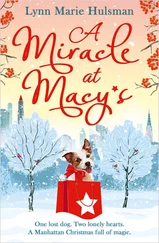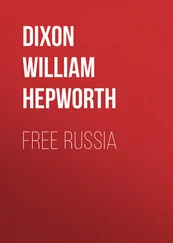Nikolai Nekrasov - Who Can Be Happy and Free in Russia?
Здесь есть возможность читать онлайн «Nikolai Nekrasov - Who Can Be Happy and Free in Russia?» весь текст электронной книги совершенно бесплатно (целиком полную версию без сокращений). В некоторых случаях можно слушать аудио, скачать через торрент в формате fb2 и присутствует краткое содержание. Год выпуска: 2005, Жанр: Поэзия, на английском языке. Описание произведения, (предисловие) а так же отзывы посетителей доступны на портале библиотеки ЛибКат.
- Название:Who Can Be Happy and Free in Russia?
- Автор:
- Жанр:
- Год:2005
- ISBN:нет данных
- Рейтинг книги:3 / 5. Голосов: 1
-
Избранное:Добавить в избранное
- Отзывы:
-
Ваша оценка:
- 60
- 1
- 2
- 3
- 4
- 5
Who Can Be Happy and Free in Russia?: краткое содержание, описание и аннотация
Предлагаем к чтению аннотацию, описание, краткое содержание или предисловие (зависит от того, что написал сам автор книги «Who Can Be Happy and Free in Russia?»). Если вы не нашли необходимую информацию о книге — напишите в комментариях, мы постараемся отыскать её.
Who Can Be Happy and Free in Russia? — читать онлайн бесплатно полную книгу (весь текст) целиком
Ниже представлен текст книги, разбитый по страницам. Система сохранения места последней прочитанной страницы, позволяет с удобством читать онлайн бесплатно книгу «Who Can Be Happy and Free in Russia?», без необходимости каждый раз заново искать на чём Вы остановились. Поставьте закладку, и сможете в любой момент перейти на страницу, на которой закончили чтение.
Интервал:
Закладка:
From out the dark forest
Fly seven brown owls,
And on seven tall pine-trees 190
They settle themselves
To enjoy the disturbance.
They laugh—birds of night—
And their huge yellow eyes gleam
Like fourteen wax candles.
The raven—the wise one—
Sits perched on a tree
In the light of the fire,
Praying hard to the devil
That one of the wranglers, 200
At least, should be beaten
To death in the tumult.
A cow with a bell
Which had strayed from its fellows
The evening before,
Upon hearing men's voices
Comes out of the forest
And into the firelight,
And fixing its eyes,
Large and sad, on the peasants, 210
Stands listening in silence
Some time to their raving,
And then begins mooing,
Most heartily moos.
The silly cow moos,
The jackdaw is screeching,
The turbulent peasants
Still shout, and the echo
Maliciously mocks them—
The impudent echo 220
Who cares but for mocking
And teasing good people,
For scaring old women
And innocent children:
Though no man has seen it
We've all of us heard it;
It lives—without body;
It speaks—without tongue.
The pretty white owl
Called the Duchess of Moscow 230
Comes plunging about
In the midst of the peasants,
Now circling above them,
Now striking the bushes
And earth with her body.
And even the fox, too,
The cunning old creature,
With woman's determined
And deep curiosity,
Creeps to the firelight 240
And stealthily listens;
At last, quite bewildered,
She goes; she is thinking,
"The devil himself
Would be puzzled, I know!"
And really the wranglers
Themselves have forgotten
The cause of the strife.
But after awhile
Having pummelled each other 250
Sufficiently soundly,
They come to their senses;
They drink from a rain-pool
And wash themselves also,
And then they feel sleepy.
And, meanwhile, the peewit,
The poor little fledgeling,
With short hops and flights
Had come fluttering towards them.
Pakhóm took it up 260
In his palm, held it gently
Stretched out to the firelight,
And looked at it, saying,
"You are but a mite,
Yet how sharp is your claw;
If I breathed on you once
You'd be blown to a distance,
And if I should sneeze
You would straightway be wafted
Right into the flames. 270
One flick from my finger
Would kill you entirely.
Yet you are more powerful,
More free than the peasant:
Your wings will grow stronger,
And then, little birdie,
You'll fly where it please you.
Come, give us your wings, now,
You frail little creature,
And we will go flying 280
All over the Empire,
To seek and inquire,
To search and discover
The man who in Russia—
Is happy and free."
"No wings would be needful
If we could be certain
Of bread every day;
For then we could travel
On foot at our leisure," 290
Said Prov, of a sudden
Grown weary and sad.
"But not without vodka,
A bucket each morning,"
Cried both brothers Goóbin,
Mitródor and Ívan,
Who dearly loved vodka.
"Salt cucumbers, also,
Each morning a dozen!"
The peasants cry, jesting. 300
"Sour qwass, [5] A kind of home-brewed cider.
too, a jug
To refresh us at mid-day!"
"A can of hot tea
Every night!" they say, laughing.
But while they were talking
The little bird's mother
Was flying and wheeling
In circles above them;
She listened to all,
And descending just near them 310
She chirruped, and making
A brisk little movement
She said to Pakhóm
In a voice clear and human:
"Release my poor child,
I will pay a great ransom."
"And what is your offer?"
"A loaf each a day
And a bucket of vodka,
Salt cucumbers also, 320
Each morning a dozen.
At mid-day sour qwass
And hot tea in the evening."
"And where, little bird,"
Asked the two brothers Goóbin,
"And where will you find
Food and drink for all seven?"
"Yourselves you will find it,
But I will direct you
To where you will find it." 330
"Well, speak. We will listen."
"Go straight down the road,
Count the poles until thirty:
Then enter the forest
And walk for a verst.
By then you'll have come
To a smooth little lawn
With two pine-trees upon it.
Beneath these two pine-trees
Lies buried a casket 340
Which you must discover.
The casket is magic,
And in it there lies
An enchanted white napkin.
Whenever you wish it
This napkin will serve you
With food and with vodka:
You need but say softly,
'O napkin enchanted,
Give food to the peasants!' 350
At once, at your bidding,
Through my intercession
The napkin will serve you.
And now, free my child."
"But wait. We are poor,
And we're thinking of making
A very long journey,"
Pakhóm said. "I notice
That you are a bird
Of remarkable talent. 360
So charm our old clothing
To keep it upon us."
"Our coats, that they fall not
In tatters," Román said.
"Our laputs, [6] Laput is peasants' footgear made of bark of saplings.
that they too
May last the whole journey,"
Demyan next demanded.
"Our shirts, that the fleas
May not breed and annoy us,"
Luká added lastly. 370
The little bird answered,
"The magic white napkin
Will mend, wash, and dry for you.
Now free my child."
Pakhóm then spread open
His palm, wide and spacious,
Releasing the fledgeling,
Which fluttered away
To a hole in a pine-tree.
The mother who followed it 380
Added, departing:
"But one thing remember:
Food, summon at pleasure
As much as you fancy,
But vodka, no more
Than a bucket a day.
If once, even twice
You neglect my injunction
Your wish shall be granted;
The third time, take warning: 390
Misfortune will follow."
The peasants set off
In a file, down the road,
Count the poles until thirty
And enter the forest,
And, silently counting
Each footstep, they measure
A verst as directed.
They find the smooth lawn
With the pine-trees upon it, 400
They dig all together
And soon reach the casket;
They open it—there lies
The magic white napkin!
They cry in a chorus,
"O napkin enchanted,
Give food to the peasants!"
Look, look! It's unfolding!
Two hands have come floating
From no one sees where; 410
Place a bucket of vodka,
A large pile of bread
On the magic white napkin,
And dwindle away.
"The cucumbers, tea,
And sour qwass—where are they then?"
At once they appear!
The peasants unloosen
Their waistbelts, and gather
Around the white napkin 420
To hold a great banquet.
In joy, they embrace
One another, and promise
That never again
Will they beat one another
Without sound reflection,
But settle their quarrels
In reason and honour
As God has commanded;
Интервал:
Закладка:
Похожие книги на «Who Can Be Happy and Free in Russia?»
Представляем Вашему вниманию похожие книги на «Who Can Be Happy and Free in Russia?» списком для выбора. Мы отобрали схожую по названию и смыслу литературу в надежде предоставить читателям больше вариантов отыскать новые, интересные, ещё непрочитанные произведения.
Обсуждение, отзывы о книге «Who Can Be Happy and Free in Russia?» и просто собственные мнения читателей. Оставьте ваши комментарии, напишите, что Вы думаете о произведении, его смысле или главных героях. Укажите что конкретно понравилось, а что нет, и почему Вы так считаете.











